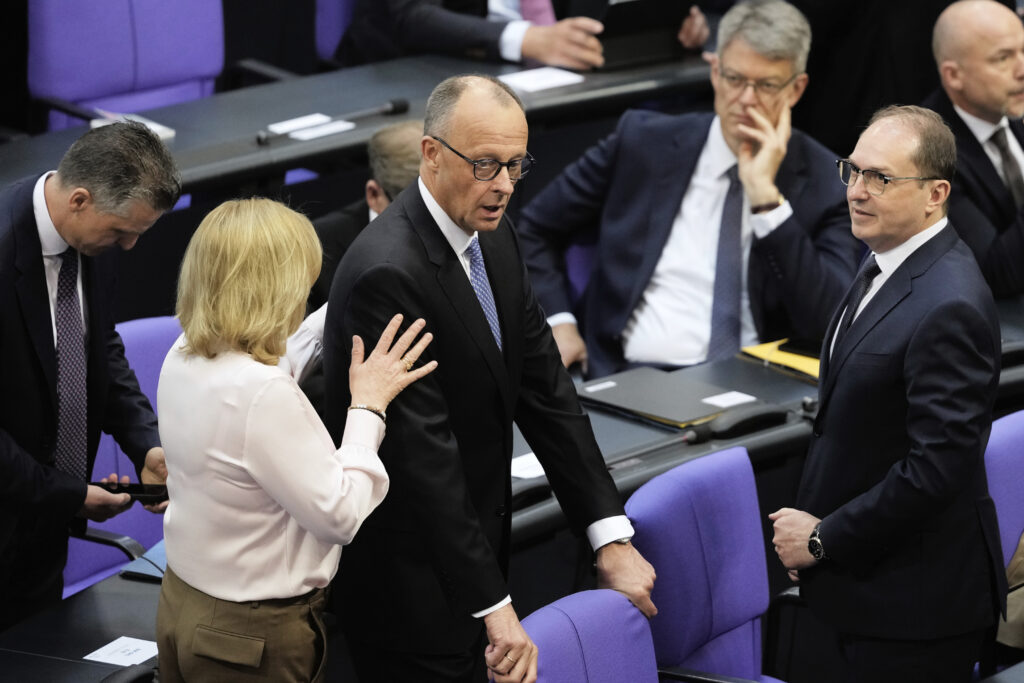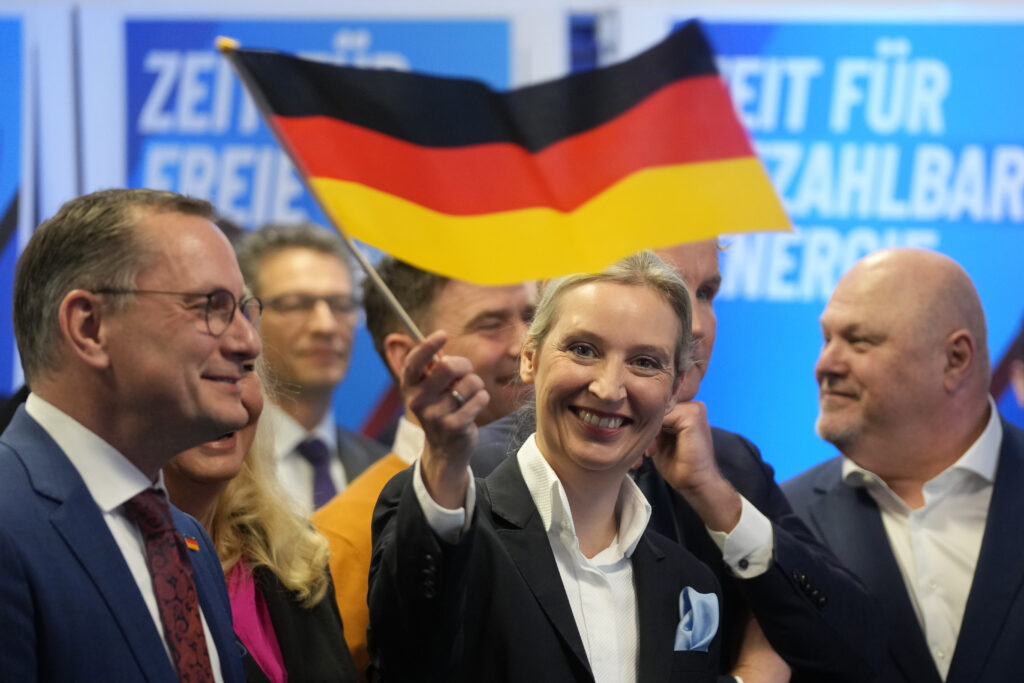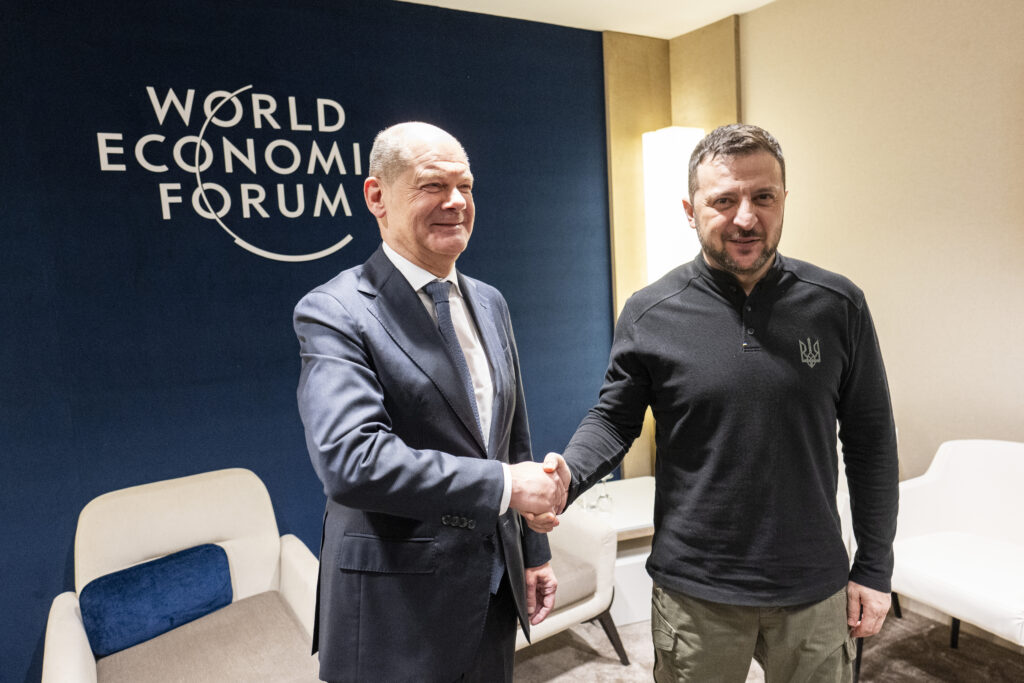Select An AI Action To Trigger Against This Article
Atop a fragile ruling coalition, Germany’s new chancellor, Friedrich Merz, will have to learn to live with the elephant in the living room: Alternative für Deutschland. The AfD is not only Germany’s biggest opposition party in the Bundestag: According to new polls, it is the most popular party in the country. Its White House fan club includes Elon Musk, Secretary Rubio, and Vice President Vance.
When Mr. Merz stumbled yesterday and became the first candidate chancellor since World War II to lose a Bundestag confirmation vote, all microphones swiveled to the AfD co-leader, Alice Weidel. The photogenic Ms. Weidel obliged and demanded new elections. Of Mr. Merz’s governing partners, the Social Democratic Party, or SPD, this hard-right leader said: “It shows you how weak this coalition of conservatives and the SPD is.”
Mr. Merz, a conservative with 36 years of experience in federal politics, soldiered on. He patched together his coalition and won a second vote. In 2017, Mr. Merz had vowed in an interview with Bild magazine to “halve” the AfD vote. Instead, the AfD vote doubled, hitting 10 million in the Bundestag election in February.
 Friedrich Merz after failing to be elected as chancellor at the Bundestag, Berlin, May 6, 2025. AP/Markus Schreiber
Friedrich Merz after failing to be elected as chancellor at the Bundestag, Berlin, May 6, 2025. AP/Markus SchreiberFinally in power, Mr. Merz faces a fork in the road when it comes to dealing with the AfD. On Friday, Germany’s domestic intelligence agency, the BfV, drew on a classified 1,100-page report to declare the AfD “an extremist organization” based on allegations of racism and anti-Muslim beliefs. The new classification allows the agency to cultivate informers in the party, to install wiretaps, and, potentially, to deny public funding.
Inheriting this bureaucratic hand grenade, Mr. Merz told German reporters yesterday: “Ten million AfD voters — you can’t ban them. You have to engage with them factually and on substance. And I want to do everything in this federal government to help people regain trust in the political center — so that they no longer feel the need to vote for a party like the AfD.”
The chancellor’s other approach may be to try to steal two flags from the AfD — immigration and nuclear power. Pollsters say immigration tops Germans’ worry lists. Almost 20 percent of Germany’s 83 million inhabitants are foreign-born, a level that sets off alarm bells in North America. By comparison, foreign-born persons account for about 15 percent of America’s population and 23 percent of Canada’s.
In January, Mr. Merz broke a decade-long taboo in German politics against using AfD votes to pass legislation. He drew on AfD support for a motion in the Bundestag to tighten immigration enforcement. The motion failed because some members of his Christian Democratic Union defected in outrage. However, future cooperation is expected if Mr. Merz acts on his promises to block immigration from the developing world.
 The co-leader of the rightist Alternative for Germany, Alice Weidel, at Berlin, February 23, 2025. AP/Michael Probst
The co-leader of the rightist Alternative for Germany, Alice Weidel, at Berlin, February 23, 2025. AP/Michael ProbstOn nuclear power, Germany’s electricity prices doubled last year, causing hardships for voters and industries alike. Although Germany’s post-Fukushima decision to phase out nuclear power was taken by a fellow Christian Democrat, Chancellor Merkel, Mr. Merz has described the move as a “grave strategic mistake.” His coalition manifesto vows: “We are assessing the resumption of operation of the recently-shut-down nuclear power plants.”
Here they are on the same page with the AfD, which argues that Berlin should “allow a lifetime extension of still operating nuclear power plants on a transitional basis.”
One key area where the two conservative parties diverge is on the issue of Russia’s war against Ukraine. Over the last three years, Germany has been the largest donor nation to Ukraine, after the United States.
In the left-right coalition agreement that put Mr. Merz in power yesterday, the word “Ukraine” appears 17 times. The coalition calls Russia “the most direct and dangerous threat to European peace.” It warns that Germany’s security is “under greater threat than at any point since the end of the Cold War.”
The only minister that the new chancellor carries over from the old government is the defense minister, Boris Pistorius. The two men, both hawks on Russia, are believed to pass three litmus tests on Ukraine: sending Taurus cruise missiles to Ukraine, contributing soldiers to an Anglo-French “reassurance” force to enforce an armistice, and raising German defense spending to President Trump’s new 5 percent target.
In contrast, the AfD opposes Western sanctions on Russia and calls for ending German military aid to Ukraine. Several news investigations allege that Russian money has been funneled to the party and to some of its leaders. The party’s electoral stronghold is in the territory of the former East Germany, a Soviet satellite state controlled by Moscow between 1945 and 1989.
On Monday, the Kremlin spokesman, Dmitry Peskov, tut-tutted on learning of the new curbs on the AfD: “The European political landscape itself is now full of various restrictive measures against those political forces and individuals whose world view does not fit into the dominant mainstream.”
 Chancellor Scholz and the German defense minister, Boris Pistorius, on July 20, 2024, at Berlin. Carsten Koall/Getty Images
Chancellor Scholz and the German defense minister, Boris Pistorius, on July 20, 2024, at Berlin. Carsten Koall/Getty ImagesWithin minutes of Mr. Merz’s confirmation as chancellor, President Zelensky of Ukraine posted his congratulations. “Ukraine is deeply grateful for the support of Germany and its people. Your helping hand has saved thousands and thousands of Ukrainian lives,” he wrote on X. “We sincerely hope that Germany will grow even stronger and that we’ll see more German leadership in European and transatlantic affairs.”
However, if Mr. Merz’s ruling coalition proves to be shaky, it may be hard for Germany to fill the shoes of the United States in Ukraine. So far, White House sympathies lean toward the AfD. In January, Mr. Musk conducted a chummy, sometimes giggly, 74-minute live chat with Ms. Weidel. After agreeing on a series of topics — nuclear power, bureaucratic regulations, the need for tax cuts, and an end to “wokeness” — Mr. Musk opined: “Only the AfD can save Germany.” He hailed Ms. Weidel as “the leading candidate to run Germany.”
In February, it was the turn of Mr. Vance. Speaking at the Munich Security Conference, he lambasted Europe’s “establishment” for restricting speech and tilting the political playing field against outsiders. Visiting Germany nine days before the Bundestag elections, he snubbed Chancellor Scholz. Instead, he held a long meeting with Ms. Weidel.
Last Friday, it was the turn of Mr. Rubio. He denounced the “extremist” classification of AfD, posting on X: “What is truly extremist is not the popular AfD, but rather the establishment’s deadly open border immigration policies that the AfD opposes.”
 Chancellor Scholz and President Zelensky attend the World Economic Forum annual meeting on January 21, 2025 at Davos, Switzerland. Guido Bergmann/Bundesregierung via Getty Images
Chancellor Scholz and President Zelensky attend the World Economic Forum annual meeting on January 21, 2025 at Davos, Switzerland. Guido Bergmann/Bundesregierung via Getty ImagesMr. Vance, reposting Mr. Rubio’s post on X, added his own comments, saying: “The AfD is the most popular party in Germany, and by far the most representative of East Germany,” but “now the bureaucrats try to destroy it.”
The vice president added that “the West tore down the Berlin Wall together. And it has been rebuilt—not by the Soviets or the Russians, but by the German establishment.”
With these stresses — internal and external — Mr. Merz, Germany’s 10th postwar chancellor, departs today on his first foreign trips. Seeking to signal that Germany is back, he will visit France and Poland. However, after three months of political horse trading, yesterday’s lost vote does not inspire confidence.
“The whole of Europe looked to Berlin today in the hope that Germany would reassert itself as an anchor of stability and a pro-European powerhouse,” the European Council on Foreign Relations’s Jana Puglierin posted yesterday from Berlin. “That hope has been dashed. With consequences way beyond our borders.”